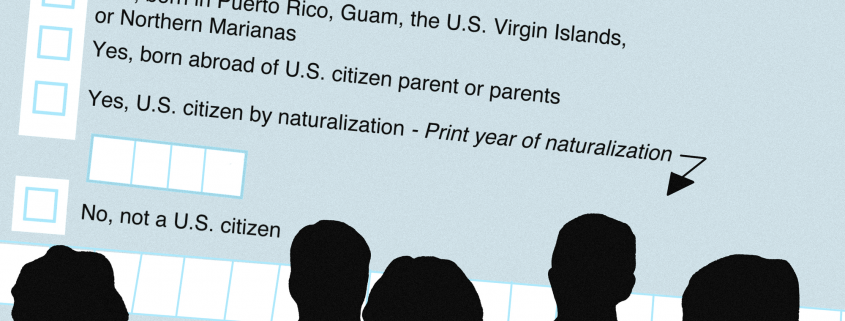Documenting the Undocumented: The 2020 Census
The United States Census has traditionally been used to approximate the demographics of the country every 10 years by taking data such as household size, age, ethnicity, and average rent cost. The answers to these questions become the catalyst for policy.
Recently, the U.S. Department of Commerce announced the questions for the upcoming 2020 Census, as well as a budget and the introduction of a digital Census. The announcement quickly became controversial because of a proposed question asking, “Is this person a citizen of the United States?” In an administration that continually marginalizes and attacks minority communities, the U.S. Census’ addition of a citizenship question has the potential to emphasize the country’s maliciousness towards undocumented people.
The Census, a national survey conducted and mandated by the U.S. Constitution every 10 years, was created to count every individual in the country and get an approximate of the population and the number of legislative seats in the House of Representatives. Additionally, the Census provides demographics necessary for federal funding and the basis for advocacy groups and research analysts on social issues such as immigration or poverty.
According to the Census Bureau, the additional question about citizenship is meant to keep track of eligible voters and to protect the Voting Rights Act to combat voting discrimination. Yet, this explanation does not completely align itself with the current and continued attacks on immigrants and refugees in the United States and other examples of voter suppression already in place.
A Fordham University and the University of Wisconsin-Milwaukee study found that the incarceration of Japanese Americans during World War II was facilitated by US Census data, which provided military agencies with information on Japanese American residencies. The breach of privacy of Census data incarnated thousands of Japanese Americans because of the fear of their alliance with the Japanese Empire during the war. American citizens, of any Japanese descent, were targeted and sent to camps, parallels current headlines.
The Census is meant to be a survey of all the people who live in the United States, not just its citizens. Having this question contradicts the Census’ objective to count every person in the United States.
The Bureau may become an unethical source of data because entire families and neighborhoods are likely to be miscounted. The undocumented must be represented in order to establish a better understanding of the community, but the current administration does not provide proper assurance of protecting immigrants.
As a result, various cities and states such as the city of San Jose, the BLACK ALLIANCE FOR JUST IMMIGRATION are suing the Department of Commerce, which oversees the Census Bureau. In their case document, the City of San Jose argued for removal of a citizenship question, which they said would “arbitrarily and capriciously [be] adding new and untested questions to the 2020 Decennial Census that will require all United States residents to disclose whether they are citizens.”
At UCLA, fourth-year student Julio C. Reyes Cabezas, a member of Improving Dreams, Equality, Access, and Success (IDEAS), sees the question as having a “hidden agenda” as a band-aid solution to a fragmented immigration policy that only temporarily protects immigrants on a systematic level. His involvement on campus includes empowering undocumented students at UCLA. Reyes adds, “there are no immigrants that are less deserving to be here than others” whether they are citizens or are in the process of becoming citizens.
He believes that instead of trying to “distract” the public with politicized surveys, there must be immediate action in protecting individuals who are unprotected. “At the end of the day if undocumented individuals are not participating, they are not being represented within the Census, they’re not truly serving them so this also leads to limiting the communities that did not participate.” —Julio Reyes. The fear of deportation can only further isolate those who already feel alienated, and their fear is not unjustified.



Leave a Reply
Want to join the discussion?Feel free to contribute!